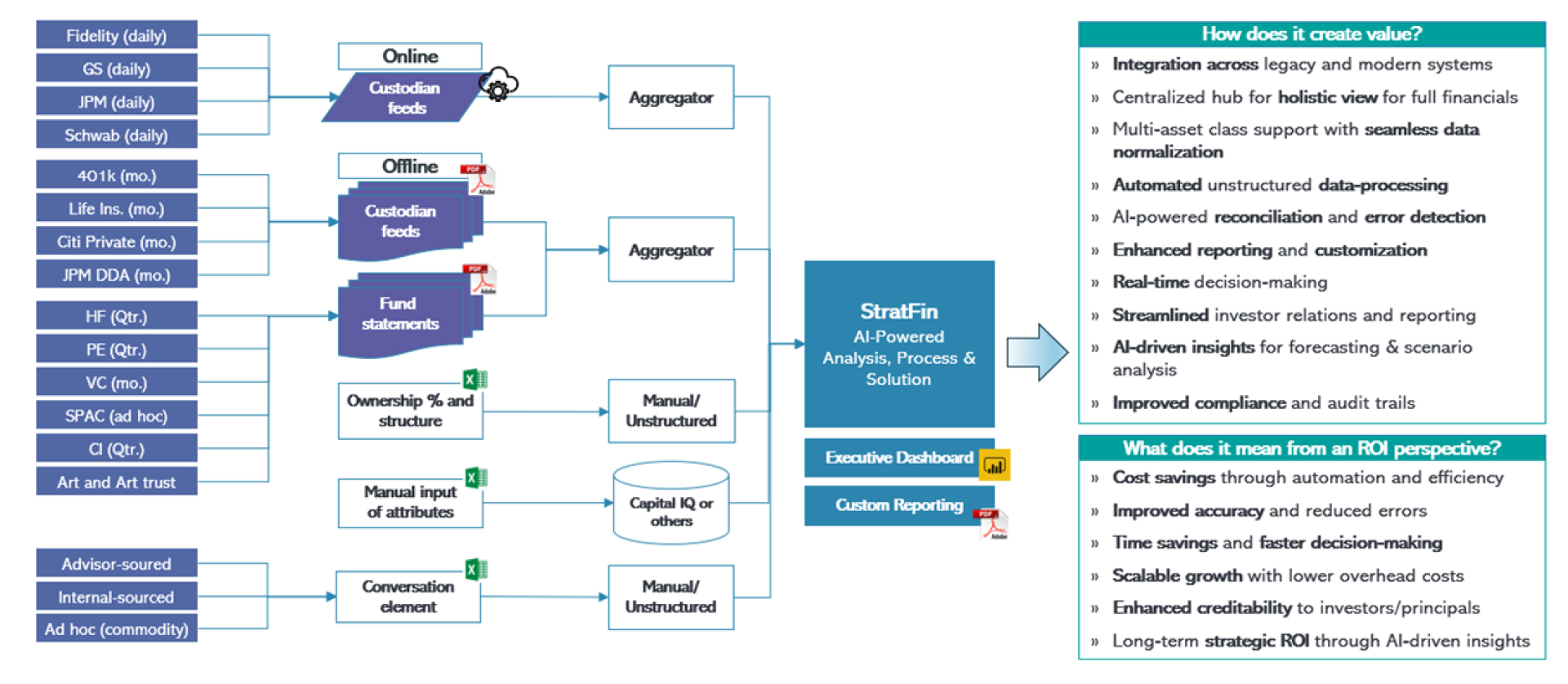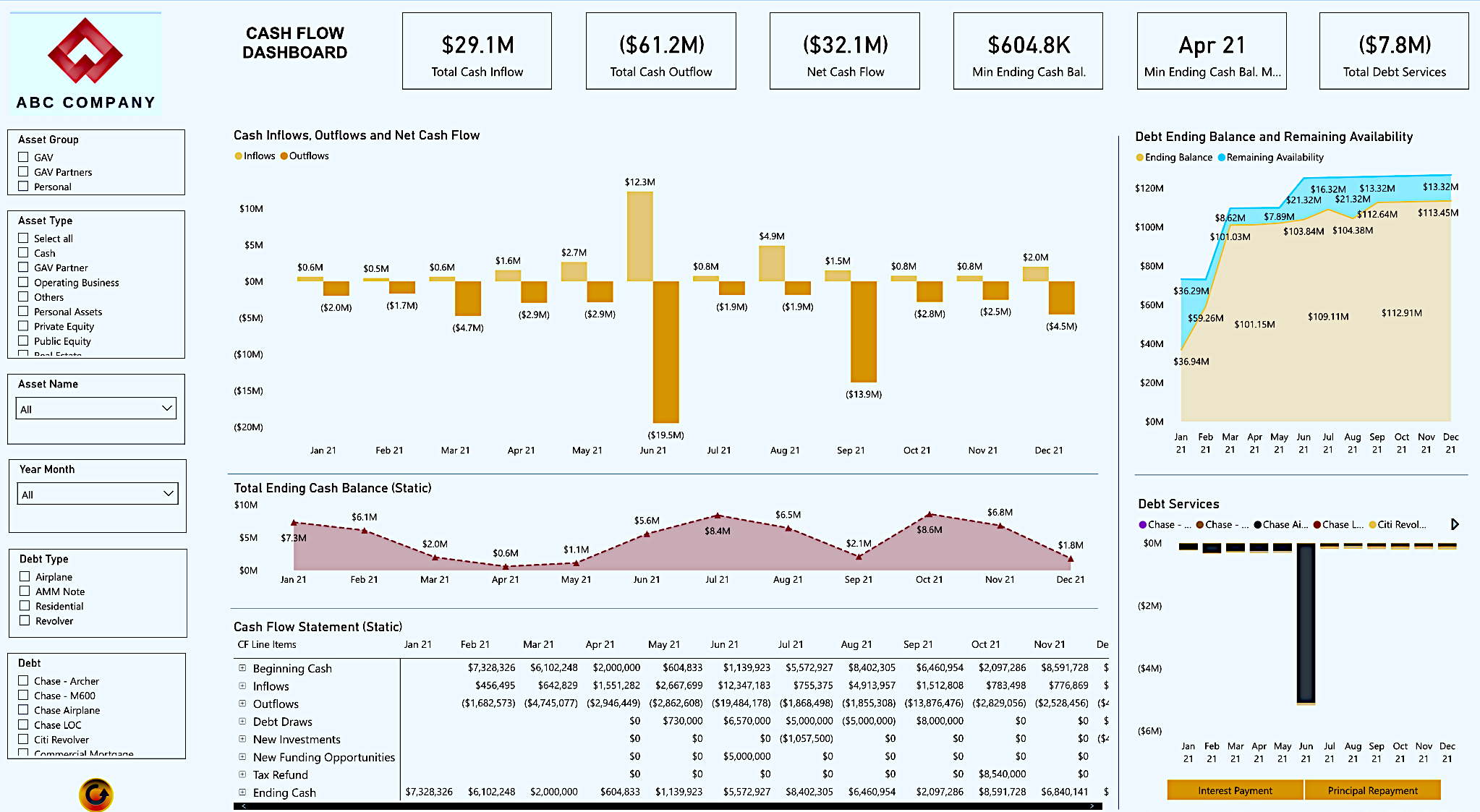The Future of Data Integration for Family Offices

In today's rapidly evolving financial landscape, Family Offices are at a pivotal crossroads. The complexity and volume of data—from custodial feeds and alternative investments to unstructured data sources—have grown exponentially and made it difficult to access insights. This demands a transformative approach to data management and reporting to ensure efficient operations and informed decision-making.
Family Offices often grapple with assets spread across diverse asset classes such as real estate, alternatives, operating businesses to antique cars. This diversification, while beneficial for wealth growth and preservation, introduces numerous and uncoordinated data sources . The reliance on rigid software packages exacerbate the issue, making it difficult to gauge holdings accurately and assess performance over time.
Digital transformation is not just a buzzword; it's a necessity for Family Offices aiming to stay ahead. By embracing modern technology, Family Offices can revolutionize their operations in the following ways:




One of the significant advantages of modern data solutions available today is the ability to address data integration and analysis needs without costly and time-consuming software implementations. There will be times where yet another software needs to be implemented. However, there are other instances when Family Offices can leverage their existing technology stack by adding in bespoke tools to better process the data. Cloud-based platforms and scalable tools allow for:

For Family Offices, the integration of diverse data sources and automation of reporting processes is no longer optional—it's essential. By adopting advanced data management strategies, Family Offices can achieve greater efficiency, deeper insights, and more informed decision-making. This transformation not only addresses current challenges but also positions Family Offices for sustained success in an increasingly complex financial environment.
StratFin Advisors specializes in helping Family Offices integrate diverse data sources and automate insights generation and reporting processes. Our expertise in data integration and financial analytics enables us to deliver customized solutions tailored to each Family Office's unique needs, fostering greater efficiency, deeper insights, and more informed decision-making.
